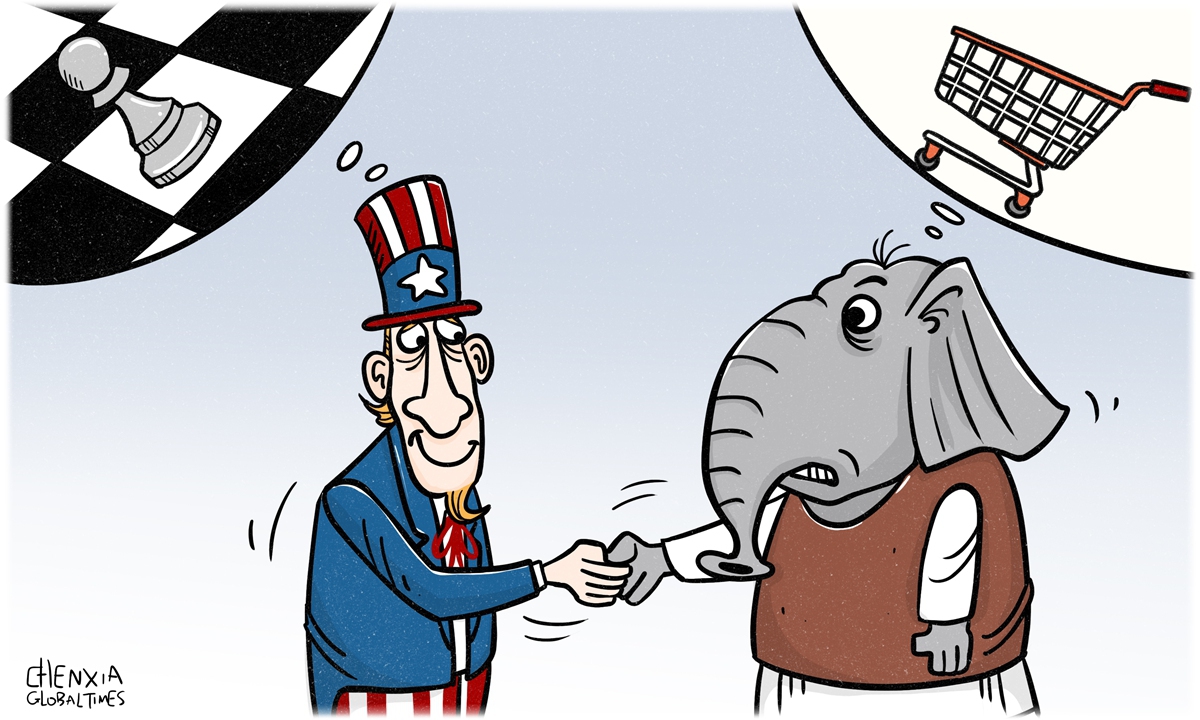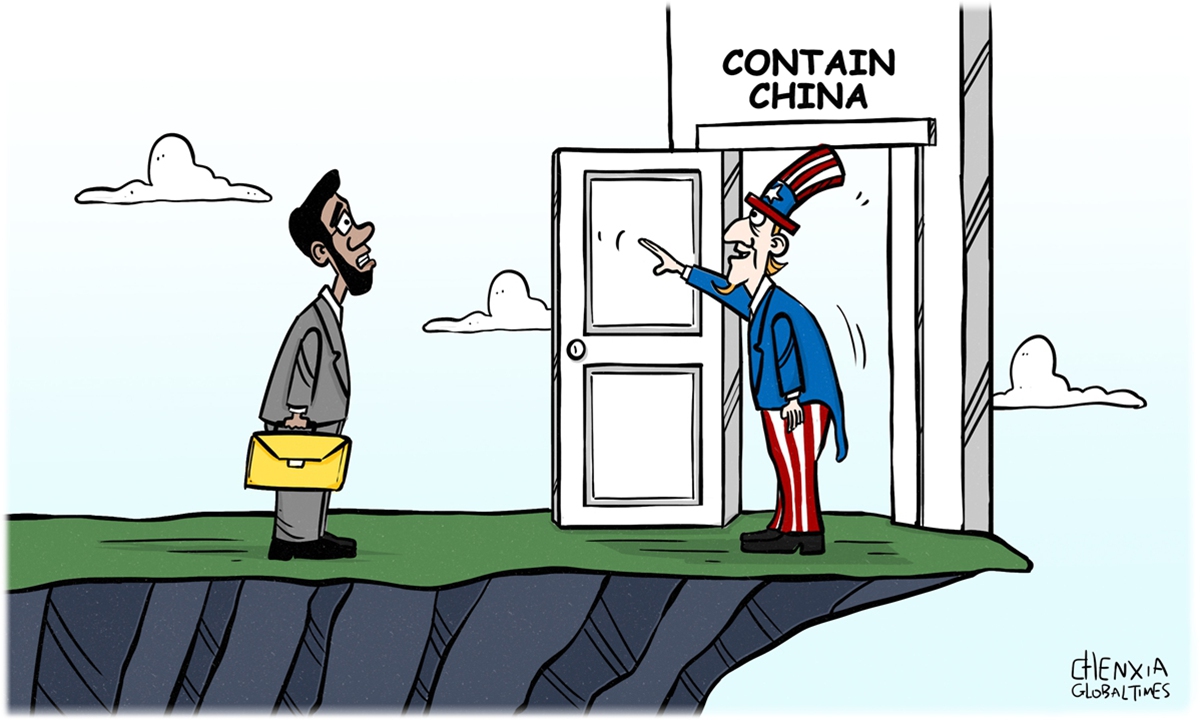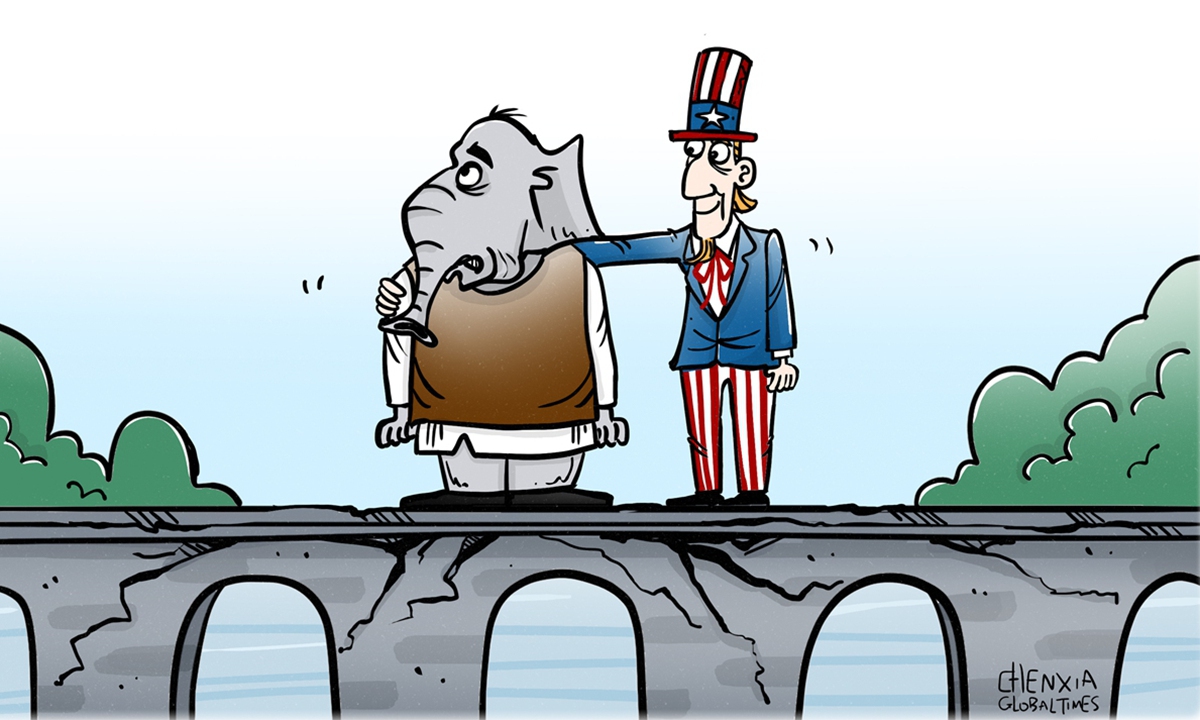
Illustration: Chen Xia/Global Times
Reuters, citing sources from US trade officials and government emails, recently reported how US officials persuaded India to roll back its laptop licensing policy by lobbying behind the scenes. In August 2023, the Indian government suddenly imposed a licensing regime on laptops and tablet imports with immediate effect, citing the need to "ensure trusted hardware and systems" entering India. This move shocked the US computer industry, and US government officials, represented by US Trade Representative Katherine Tai, expressed their concerns. Under pressure from Washington, New Delhi postponed the implementation of the licensing policy, then proposed a simpler import registration process, and ultimately canceled this decision.Although companies like Dell and HP managed to escape unharmed with the help of the US government, US companies still worry whether India will comply with WTO obligations and whether it may suddenly introduce other regulations. Amid increasing global "pan-securitization," the Indian government is constantly promoting a series of protectionist economic policies and measures with "security concerns" as an excuse. Essentially, it is trying to minimize imports through protectionist practices, and pressure key industries to move their supply chains to India.
The laptop market scale in India is about $8 billion annually, with about 65 percent of laptops imported, with local Indian brands only occupying a small market share. Therefore, the Production Linked Incentive (PLI) scheme 2.0 was approved by the Indian government in May 2023 for the development of IT hardware. The import restriction for laptops under the guise of security is purely a measure under the Make in India initiative.
Under India's shift toward "pan-securitization" and protectionism, Chinese companies bear the brunt and face the most severe crackdown and blockade, and US companies are no exception. India's requirement for "data localization" on the grounds of security concerns has put pressure on US companies such as Mastercard, Amazon and Microsoft with strict e-commerce rules, creating "trade barriers" and increasing the operating costs of these US companies in India. The US and India have tried to reconcile their digital policies under the Indo-Pacific Economic Framework, but the Indian authorities still maintain their basic stance and demands despite the US government's opposition.
Clearly, although the US and India have formed a "convergence" to some extent in their efforts to contain China, they are still at loggerheads in their economic and trade policies toward each other. The fundamental reason for this is that both the US and India are securitizing economic issues and increasingly adopting protectionist policies, naturally opposing each other in trade.
New Delhi's promotion of Make in India and Washington's pledge to "bring back manufacturing" have created competition rather than complementary positioning. Similarly, New Delhi is satisfied with its trade surplus with the US, but this has displeased Washington. During his presidency, former president Donald Trump was deeply concerned about India's $25.2 billion trade surplus with the US (in 2018), harshly criticizing India as the "tariff king" and as a consequence terminated India's designation as a developing country under a trade program - Generalized System of Preferences.
In recent years, India's policy elites have fantasized about strategically aligning with the US, maintaining a certain level of tension with China in exchange for continuous US assistance in India's economic rise. Obviously, New Delhi's strategic community's misinterpretation of China's rise has provided them with a reason to align with the US. Any analyst with strategic thinking can easily see that a rising India, which hopes to surpass Japan and Germany and emerge as the third-largest economy, cannot possibly avoid the fate of eventually being targeted by Washington.
To coordinate the fantasy of India's strategic circle, the US has been boosting the hype of helping India develop its manufacturing industry to "replace China." Washington and New Delhi announced the US-India initiative on Critical and Emerging Technology (iCET) in May 2022 to elevate and expand the bilateral strategic technology partnership and defense industrial cooperation between the governments, businesses and academic institutions. The two sides endeavored to expand international collaboration in a range of areas - including artificial intelligence, quantum technologies and advanced wireless - to build a robust innovation ecosystem between them.
However, the iCET is only a US tactic via defense and technology sectors to control India's policies. The deeper New Delhi gets involved in critical and emerging technology cooperation with Washington, the more it will find its strategic autonomy being eroded. Ultimately, New Delhi will realize that iCET is a "slow poison" that undermines its strategic autonomy.
The author is deputy director at the Center for South Asian Studies at Fudan University. opinion@globaltimes.com.cn


